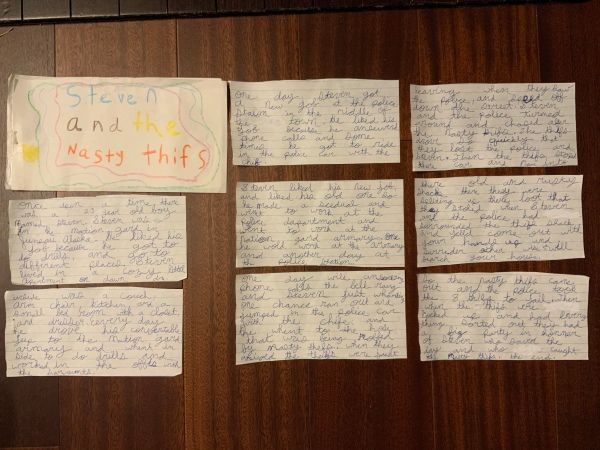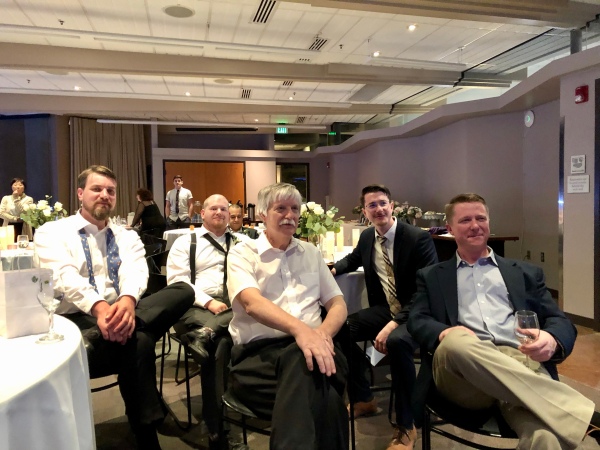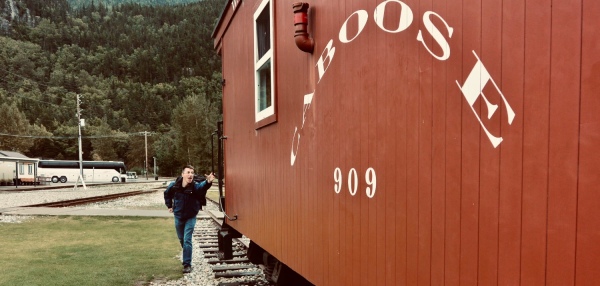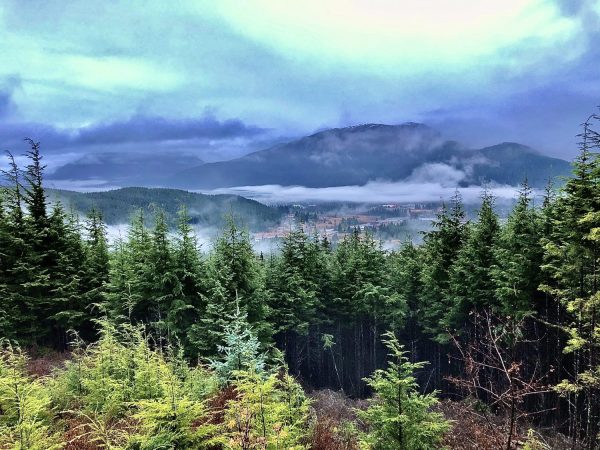The Relationship Between Work and Leisure in the Late Nineteenth Century
The following essay was submitted to the Department of History at American Military University to fulfill partial requirements for my Bachelor’s degree in American History.
The industrial revolution coincided with, if not outright inspired, a leisure revolution.
There exists an interesting relationship between work and leisure. In his book, The Use of Leisure, Temple Scott writes, “Making a living is not living; making a living is only a means to living. We are so accustomed to spend the best years of our lives in efforts to keep alive that living is come to mean working in order to be able to go on working.”[1] Scott wrote these words in 1913 at the tail end of an industrial revolution that had reshaped American society during the last one hundred years. The burgeoning industrial society required an expanding American workforce made up of people who migrated from the rural towns and villages to the growing metropolises and centers of industry. This migration was further enhanced by the millions of foreign immigrants seeking a better life in America. Life for the urban worker was hard. They were, as Scott wrote, “slaves of the captains of industry,” with little time for any form of leisure, save a few hours after a long, laborious day in the factories, mills, mines, and shops.[2] Furthermore, limited housing options and meager wages meant that opportunities to relax were restricted mostly to local pubs, religious participation, and localized community activities. The industrial revolution coincided with, if not outright inspired, a leisure revolution. As the century progressed, technologies were invented that both raised the standard of living as well as democratized many forms of leisure for the masses. Labor movements successfully advocated for shorter working days, wages increased, and the “puritanical notions concerning the value of recreation declined.”[3] All these changes promoted a society that sought to relieve the boredom, frustration, and routine inherent of urban life.[4] The new patterns of leisure that emerged in the late nineteenth century reflected both the commercialization of, and society’s dependency upon, leisure as a response to the Industrial Revolution.
Leisure was simply viewed differently in early American society than in the industrial society.
To see this relationship between industry and leisure it is first helpful to understand the relationship between work and leisure in pre-industrialized society. Historians often argue that leisure in the early republic was reserved for the wealthy class who had both the time and the finances to partake in leisure activities. While this may be true of commercial forms of leisure like theater or concerts, leisure was simply viewed differently in early American society than in the industrial society. To be sure, leisure in its various forms, whether entertainment, recreation, or other, has always existed to provide relief from laborious tasks as well as add a little excitement to life. According to Norbert Elias, humans instinctively crave excitement.[5] The Civil War served as something of a watershed moment between two competing forms of American society—the rural agrarian and the urban industrial. In pre-industrial America, that is from the Colonial era through the Civil War, society was primarily agrarian and the relationship between work and leisure was much more intertwined. According to Ishwar Modi, farmers of pre-industrial societies might work long hours in the field without the need for leisure; or, they might enjoy long periods of leisure without the need to work; or, they might interspace their daily tasks with leisure breaks.[6] Merchants and artisans likewise intertwined their work and leisure depending on the day’s workload.
Intertwined as leisure was to labor, leisure itself was not perceived as an escape from labor.
Forms of leisure in agrarian society were much more family-oriented and limited to one’s immediate area.[7] Activities such as reading, visiting, sharing music, afternoon naps, smoking tobacco, playing table games, or taking walks were all forms of leisure enjoyed by the various classes of society. Leisure among the farming and servant classes was mostly a non-commercial affair, while the affluent and wealthy classes enjoyed the finer offerings. Intertwined as leisure was to labor, leisure itself was not perceived as an escape from labor. Farmers, merchants, and artisans did not rate leisure high among societal values largely because of the Puritan notion that leisure would lead to idleness which would lead to debauchery. Additionally, the labor of one’s own hand led to fulfillment in life. Whatever the reasons, leisure in pre-industrial society was much more free-form and not dependent upon the production value inherent in the wage system of industrial labor.
As the industrial revolution developed across America, so too did the desire for leisure. The demarcation between work and leisure became more defined.[8] According to Dale Somers, “Work remained important, of course, but people tended increasingly to value it in terms of the free time it provided.”[9] Consequently, the relationship between labor and leisure became such that not only did one depend upon the other, but one actually necessitated the other. Because workers needed the financial means to provide for both their daily needs as well as their leisure activities, they fought the industrial giants to secure both higher wages and free-time. In the post-Civil War decades, trade unions advocated fiercely for a shortened work day as well as a shorter work week. Their slogan “Eight Hours for Work, Eight Hours for Rest, Eight Hours for What We Will” became the cry of the working class that would see significant progress in the late nineteenth and early twentieth centuries.[10]
Leisure became less isolated and spontaneous, and more mass-focused and commercialized.
New technology also enticed people to expand their leisure interests. Mass transit allowed people to leave the confines of their urban dwellings in pursuit of all manners of entertainment and recreation. Leisure became less isolated and spontaneous, and more mass-focused and commercialized. There appeared in America a “spectacular growth of commercial amusements and organized pastimes such as the theater, vaudeville, movies, and sports.”[11] This new industry provided affordable “amusements to all classes of people on a variety of intellectual levels.”[12] As people partook of this new entertainment industry, leisure became a consumable commodity, as essential to daily life as food, clothing, or housing; and entrepreneurs took advantage of the new taste for pleasure. Somers quotes P.T. Barnum as saying, “[people], who cannot live on gravity alone, need something to satisfy their gayer, lighter moods and hours, and he who ministers to this want is in a business established by the Author of our nature.”[13]
As the nineteenth century progressed, the relationship between leisure and labor became a class struggle as the industrial revolution replaced traditional authority with class conflict.[14] Not only did the wealthy control the means of production, but they controlled the “time and place for leisure” as well.[15] Counter to the Puritan idea that hard work alone would lead to economic prosperity, leisure advocates argued that leisure was the economic equalizer. Temple Scott wrote in 1913 that “leisure is a redistributor of power. When leisure shall be a common enjoyment and over-production ceases, wealth will be more evenly divided, and with the more even division of wealth will follow a redistribution of power.”[16] The fight for leisure between industry and the worker was a fight for “the leisured man…a chance to make good.”[17]
The value of work was judged by the free time it afforded.
The work ethic of the rural, agrarian society had given way to the pleasure-centered mind of the urban, industrial society. The value of work was judged by the free time it afforded.[18] Thus, not only had the value of leisure superseded the value of work, but society itself was torn between the two competing ideologies. “What Americans wanted,” writes Somers, “was an abundance of free time.”[19] Therein lay what President Garfield declared in 1880 “the whole struggle of the human race…the fight to get leisure; and then…what shall we do with our leisure when we get it.”[20]
In agrarian society, leisure was rewarding; while in the industrial, leisure was an escape.
The desire for leisure aligned closely with the most fundamental of American values—That people are endowed with God-given rights to life, liberty, and the pursuit of happiness.[21] Was pre-industrial society, then, an unhappy society? Probably not, although Scott argued differently. He paints a bleak picture of the farmer: “The pageant of landscape and of sky passes by them unseen. They are bowed and bent earthward. The grind of their toil has worn their faces to unlovely lines. They suck sustenance out of the earth with life-spending gasps. Each day’s labor is a crucifixion of Love on the market cross.”[22] His critique of the merchant is just as grim. Scott failed to understand the rewards that hard work brings to the mind and soul. The industrial notion of leisure differed from the agrarian. In industrial society, leisure was an escape from the grueling reality of boredom, urbanization, and class conflict. In the agrarian, there existed a spontaneity and simplicity to leisure that neither industry nor commercialization could replicate. In the agrarian, leisure was rewarding; while in the industrial, leisure was an escape.
Commercialized leisure certainly added a level of excitement and entertainment that society had yet to experience; however, within that arena lay concerns that commercialized leisure led to a society disconnected from itself. The concern was not entirely accurate, for there arose in the late nineteenth century the advent of non-commercial organized pastimes such as sporting, athletic, and social clubs that offered communities of disparate people a way to participate in leisure and was much better suited for urban society. However, the concern was also based upon the Puritan notion that hard work is sufficient for an individual to improve one’s social and economic status and that leisure leads to debauchery.[23] This concern dissipated somewhat during the late nineteenth century as Protestant leaders began to assert that certain forms of leisure and activity could be sanctified. Many religious groups countered commercialized leisure with their own “amusements and recreation as alternatives to undesirable play.”[24] Examples included resort communities, “libraries, gymnasiums, and assembly rooms.”[25] Gymnasiums were especially popular with the advent of the Muscular Christian movement, from whence came such organizations as the Young Men’s Christian Association, as exercise and sport were seen as Christian virtues.
A leisured worker was a content worker, or at least an appeased worker.
The leisure revolution that coincided with the industrial revolution transformed the relationship between labor and leisure. The virtues of agrarian labor and leisure had all but faded. Industry now ruled the world. The era was marked by class conflict, where captains of industry, trusts, big business, and government held the American worker hostage to low wages, long hours, deplorable conditions, cramped housing, and a meager standard of living. American industry needed a workforce that could produce the high-volume output the industrialized world demanded, and laborers needed a way to relieve the stress and frustration of the daily grind. The answer for both entities was leisure. A leisured worker was a content worker, or at least an appeased worker. As the leisure revolution gave rise to a new entertainment industry and other forms of leisure and recreation, the American worker responded to industrial servitude with demands for higher wages and more free time. Leisure offered not only a way out but also a way up. “Give a man leisure,” writes Scott, “and you recreate him…Work will be no longer the hateful necessity it is now, it will be acceptable, and accomplished as the expression of the worker’s sincerity.”[26]
By the beginning of the twentieth century, the re-creation of the American laborer was in full affect as industry and government gave into demands for free time, and Americans fully engaged in the ever-growing industry of leisure. Making a living was becoming more than a means to living, it was becoming a means to escape the living. In other words: everybody started working for the weekend.
Bibliography
Butsch, Richard. “Introduction: Leisure and Hegemony in America.” In For fun and profit : the transformation of leisure into consumption. Edited by Richard Butsch, 3-27. Philadelphia: Temple University Press, 1990. https://archive.org/details/forfunprofittran0000unse/page/n5/mode/2up?view=theater&q=sunday.
Hoover, Dwight W. “Roller-skating toward Industrialization.” In Hard at Play: Leisure in America, 1840-1940, edited by Kathryn Grover, 61-76. New York: Strong Museum, 1992. https://archive.org/details/hardatplayleisur0000unse/page/n5/mode/2up.
McLean, Daniel., Hurd, Amy. Kraus’ Recreation and Leisure in Modern Society. United States: Jones & Bartlett Learning, 2011.
Modi, Ishwar. “Leisure and Social Transformation.” Sociological Bulletin 61, no. 3 (2012): 386–403. http://www.jstor.org/stable/26290632.
Rybczynski, Witold. “A World of Weekends.” In Waiting for the Weekend, 132-161. New York:Viking, 1991. https://archive.org/details/waitingforweeken00rybc/page/6/mode/2up?q=%22eight+hours%22.
Scott, Temple. The Use of Leisure. New York: B. W. Huebsch, 1923. https://archive.org/details/useleisure00scotgoog/page/n6/mode/2up.
Somers, Dale A. “The Leisure Revolution in the American City, 1820-1920.” Journal of Popular Culture V, no. 1 (1971): 125-47. Accessed February 19, 2023. https://onlinelibrary.wiley.com/doi/abs/10.1111/j.0022-3840.1971.0501_125.x.
[1] Temple Scott, The Use of Leisure, (New York: B. W. Huebsch, 1923), 1, https://archive.org/details/useleisure00scotgoog/page/n6/mode/2up.
[2] Ibid., 14.
[3] Dale A. Somers, “The Leisure Revolution in the American City, 1820-1920,” Journal of Popular Culture V, no. 1 (1971): 127, accessed February 19, 2023, https://onlinelibrary.wiley.com/doi/abs/10.1111/j.0022-3840.1971.0501_125.x.
[4] Dwight W. Hoover, “Roller-skating toward Industrialization,” in Hard at Play: Leisure in America, 1840-1940, ed. Kathryn Grover (New York: Strong Museum, 1992), 66, https://archive.org/details/hardatplayleisur0000unse/page/n5/mode/2up.
[5] Ibid.
[6] Ishwar Modi, “Leisure and Social Transformation,” Sociological Bulletin 61, no. 3 (2012): 390, http://www.jstor.org/stable/26290632.
[7] Ibid., 392.
[8] Ibid., 390.
[9] Somers, 128.
[10] Witold Rybczynski, Waiting for the Weekend, (New York: Viking, 1991), 133, https://archive.org/details/waitingforweeken00rybc/page/6/mode/2up?q=%22eight+hours%22.
[11] Somers, 127.
[12] Ibid., 128.
[13] P.T. Barnum, Struggles and Triumphs; or Forty Years’ Recollections of P.T. Barnum (Hartford, 1871), 72, quoted in Dale A. Somers, 127, accessed February 19, 2023, https://onlinelibrary.wiley.com/doi/abs/10.1111/j.0022-3840.1971.0501_125.x.
[14] 1. Richard Butsch, For fun and profit : the transformation of leisure into consumption, ed. Richard Butsch, (Philadelphia: Temple University Press, 1990), 11, https://archive.org/details/forfunprofittran0000unse/page/n5/mode/2up?view=theater&q=sunday.
[15] Ibid.
[16] Scott, 23.
[17] Ibid.
[18] Somers, 128.
[19] Ibid.
[20] Daniel McLean and Amy Hurd, Kraus’ Recreation and Leisure in Modern Society, (United States: Jones & Bartlett Learning, 2011), 40 https://samples.jbpub.com/9781284034103/9781449689568_CH03_Secure.pdf_.
[21] Scott, 13.
[22] Ibid., 15.
[23] McLean and Hurd, 37.
[24] Ibid., 39.
[25] Ibid.
[26] Scott, 21.








